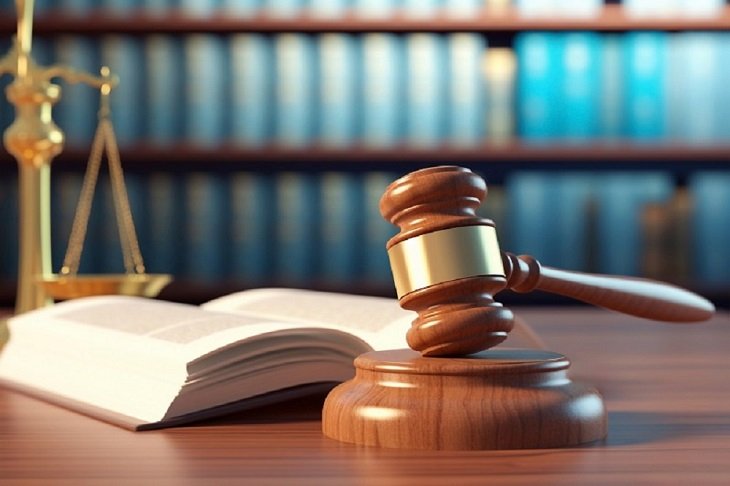Have you ever wondered how to choose the best criminal defence lawyer when you’re facing drug charges? Or maybe you’re worried about complex Australian laws, like the Drugs Misuse Regulation 1987, that can be tough to navigate on your own. Whatever your concerns, you’re in the right place. This post will give you a friendly yet thorough look at what you need to know before deciding on a lawyer.
Choosing the right legal representation can be the difference between a smooth process and a chaotic, stressful experience. You might be dealing with questions about “What amount of drugs is considered personal use?” or how the Drugs Misuse Act 1986 works with the Criminal Code QLD (PDF). These laws can seem overwhelming, especially if you’re new to the legal system. Together, we’ll explore practical tips and essential traits to look for in a criminal defence lawyer, so you can feel more confident in your future decisions.
By the end of this post, you’ll understand the common legal challenges faced by defendants in Australia, how drug-related offences are handled, and what qualities you should prioritise in a lawyer. You’ll also learn the right questions to ask during your initial consultations and how to budget for fees. Most importantly, you’ll walk away with a sense of clarity about how best to defend yourself if you ever need to. Let’s get started!
Table of Contents
Why Selecting The Right Criminal Defence Lawyer Matters
When you’re up against drug charges, it’s vital to have someone knowledgeable by your side. The legal framework around “dangerous drugs” or “schedule 1 drugs Australia” can be intricate. A lawyer who specialises in drug offences will better understand how these rules work in practice. That matters a lot for building a convincing defence and reducing potential penalties.
Moreover, a specialised lawyer can pinpoint loopholes or technicalities that a generalist might miss. You want an expert who knows how to interpret the Drugs Misuse Regulation and how it interacts with other relevant acts, such as the Drugs Misuse Act 1986. Having a lawyer who’s handled countless drug-related cases means they can advise on strategies specific to your unique situation. After all, no two defendants have the exact same case details.
Above everything else, you deserve someone who cares about your future. The right lawyer will not just feed you legal jargon but also guide you through the whole process with compassion. This level of support can truly ease the stress that often accompanies drug charges.
Common Legal Challenges Faced By Defendants In Australia

Australian defendants facing drug offences regularly encounter hurdles involving strict evidential requirements, harsh sentencing guidelines, and complicated regulations. For example, the Drugs Misuse Regulation 1987 categorises substances into different schedules. Each category carries a distinct set of penalties. Confusion often arises around how “schedule 1 drugs Australia” rules differ from “dangerous drugs,” making it difficult to calculate possible outcomes without the right advice.
Another common challenge is deciphering how the Criminal Code QLD (PDF) overlaps with state-based legislation. This overlap can make it unclear which court has jurisdiction or which penalties apply. Each state in Australia may handle certain aspects of drug offences differently, so being up to date on local rules is essential.
Finally, many defendants simply aren’t aware of their rights when it comes to police questioning and evidence gathering. If you don’t have sound legal counsel, you could unknowingly give up information or sign documents that harm your defence. Overcoming these challenges starts with hiring a lawyer who has a successful track record in handling similar cases.
Overview Of Drug-Related Offences In Australia
Drug-related offences in Australia can range from minor possession to large-scale trafficking. While it’s easy to assume all charges are similar, the specifics depend on the substance involved and the applicable legislation. Laws often differ between states, yet key national frameworks help guide how each jurisdiction manages cases.
One of the most important pieces of legislation is the Drugs Misuse Act 1986, which lays out the main rules for prosecuting drug offences. This act, combined with the Drugs Misuse Regulation, covers the classification of drugs, potential penalties, and the processes for dealing with offences. The Criminal Code QLD (PDF) further outlines criminal liabilities, procedures, and possible defences, making the entire network of laws quite interconnected.
In practice, the combination of these regulations means defendants need a lawyer well-versed in local and national laws to fight their case effectively. It’s all about understanding the minor nuances—like how a drug is scheduled—that can shift the direction of a trial or sentencing.
People Also Ask: Understanding The Legal Landscape
Sometimes, broad questions pop up that aren’t always addressed in official paperwork. Let’s look at a few of them to make the legal landscape a bit less confusing.
What Are The Most Common Drug Charges And Sentences In Australia?
The “list of drug charges and sentences Australia” is relatively varied. Common charges include possession, supply, trafficking, and production. Sentences might involve fines, community service orders, or prison. Repeat offenders often face harsher penalties, while first-time offenders might be directed toward diversion programs.
How Does The Drugs Misuse Regulation Impact First-Time Offenders?
If you’re new to the justice system, you might receive some leniency, especially if you haven’t committed other offences. The Drugs Misuse Regulation often outlines guidelines for judges to consider mitigating factors such as age, personal circumstances, and cooperation with law enforcement. Specialised lawyers know how to present these factors in the most positive light.
Can A Lawyer Help Reduce Sentences Under The Drugs Misuse Regulations?
Absolutely. A well-prepared lawyer can negotiate plea bargains or demonstrate that certain charges lack evidence, effectively reducing the severity of your sentence. The key is assembling evidence, ensuring your rights aren’t violated, and arguing convincingly in court. Even if a reduction is not guaranteed, having thorough legal counsel increases your chances of a favourable outcome.
Common Mistakes To Avoid When Choosing A Lawyer

Selecting a lawyer is a massive decision. Unfortunately, some pitfalls can lead you down the wrong path.
Ignoring Specialisation In Drug Laws
A general criminal lawyer may not know the fine points of “drugs misuse regulations.” This can cause misunderstandings about the difference between personal use and trafficking, leading to weaker defences.
Overlooking Communication Style And Transparency
If your lawyer brushes off your concerns or doesn’t return your calls, it might create tension. This breakdown can become a bigger problem as your case progresses. Opt for someone who consistently keeps you in the loop.
Failing To Compare Multiple Lawyers
Rushing to hire the first lawyer you meet is tempting—especially in high-stress situations. However, meeting at least two or three allows you to compare fees, communication style, and track record, so you can make a more informed decision.
Conclusion
Taking the time to find the right criminal defence lawyer can directly impact your experience with the Australian legal system. Whether you’re assessing the Drugs Misuse Regulation 1987 or checking where you stand on “dmta schedule 1,” having a specialised lawyer by your side offers guidance during an otherwise stressful period. Good communication, local knowledge, and a strong track record are some of the main points you should keep in mind.
Ultimately, your lawyer should be someone who’s ready to defend your rights without leaving you in the dark. Make sure they explain how “dangerous drugs” are defined, break down the “list of drug charges and sentences Australia” that might apply, and keep you updated about likely outcomes. This openness to questions and transparent approach helps you feel in control at every turn.
If you’re facing drug charges now or simply want to be prepared for any future legal matters, remember that finding a capable lawyer isn’t just about credentials. It’s about feeling comfortable with the person who will represent you in court. Armed with these tips, you can move forward with a clear strategy and greater confidence, knowing you’ve done your homework when it comes to selecting the right criminal defence lawyer. Good luck on your journey, and stay informed!








